

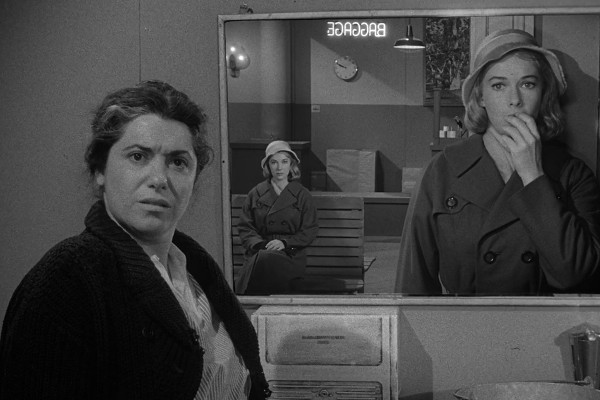
A classic doppelganger story, which may be a little thin to even sustain 24 minutes, but nevertheless has plenty of nice, eerie touches. The fact that this is television nearly sixty years old can be gleaned from the light soft focus on the lead actress, or the fact that phrases like "queer" can be used in their olden day meanings. There's also blackly comic amusement at how mental health was regarded at the time, with two police officers roughly grabbing a suspected "nut" and throwing her into the back of a police car without a word. The final twist, while not unexpected, is no less effective because of it.
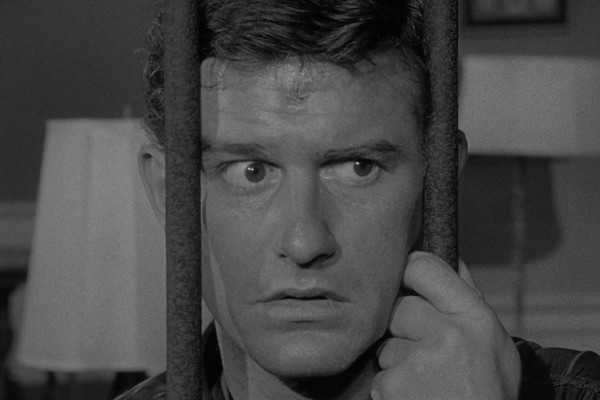
Roddy McDowall stars in this space-set tale, eight years before he'd achieve far more lasting success in another script with Serling's hand in it, Planet of the Apes. If there's a criticism, it's that a "colony on Mars" tale seems antiquated in the present day, and, like most of the pure "twist" stories, events can be a little thin, seeming to work backwards from the climax rather than leading towards them. However, these are small complaints in one of the finest and most memorable instalments.
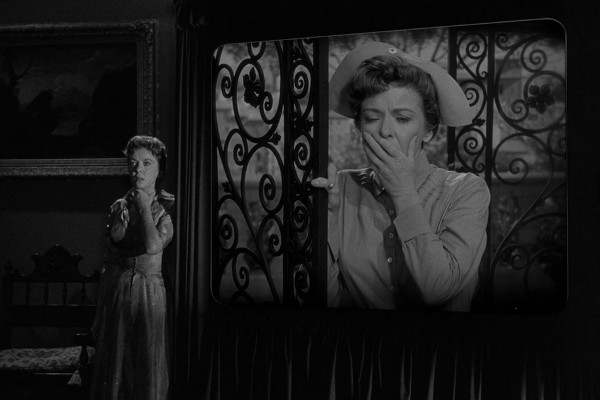
A highly compelling look at a faded actress on the verge of a breakdown, well played by Ida Lupino. The daughter of largely-forgotten music hall film star Stanley Lupino, Ida went on to be the only woman to direct a Twilight Zone episode, with season five's The Masks.
As good an episode as this is, as a Twilight Zone, the element which separates it from a standard drama seems more like an afterthought, as the actress uses wishing to place herself back into her movies, in a time when she was famous. As with The Big Tall Wish it's a kind of supernatural law of attraction, there to hang a story on rather than a plot in its own right. There is the feeling that Serling, a highly respected writer even before the series began, merely wanted to pitch his own take on Sunset Boulevard.
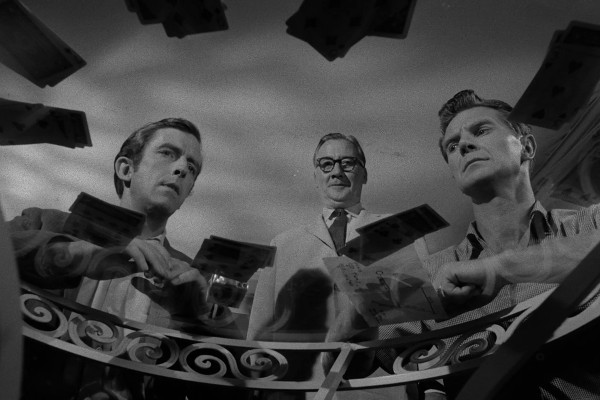
The first of seven episodes to be directed by Richard L. Bare, while it's generally The Outer Limits that's regarded as the more "noirish" in terms of direction, this one gives a darker palette than usual, and slight Dutch Angles throughout. In truth, it does seem a little ostentatious in the normally more straightforwardly-directed Twilight Zone, but it ratchets up the tension in one of the most intense instalments of the series.
Featuring a family looking to escape the planet on the verge of complete nuclear destruction, the body language of Edward Andrews immediately turns the viewers against him as the man trying to stop them. There's a dread atmosphere throughout, and, while the title of the episode may give the "twist" away somewhat, it was doubtless more striking on transmission, where the tropes of the series were being discovered for the first time, and this was its first application.
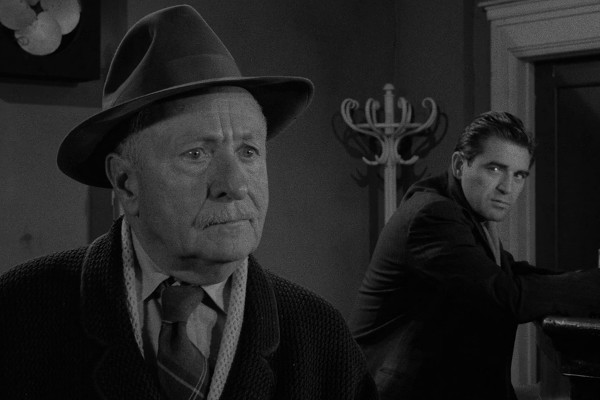
The only Twilight Zone episode to air on Christmas Day (even the Christmas-themed Night of the Meek only got to go out on the 23rd), What You Need sees a mysterious old man (Ernest Truex) give strangers exactly what they require in their lives. His world is changed when a local tough guy (Steve Cochran) tries to take advantage of his abilities and bully him into giving him the means of riches. Truex and Cochran are magnetic together, while the script by Serling (based on a 1945 short story by Henry Kuttner and C.L. Moore) grips throughout. There's always the feeling that you know where the plot is going, but the presentation is so good that the journey getting there is always compelling.
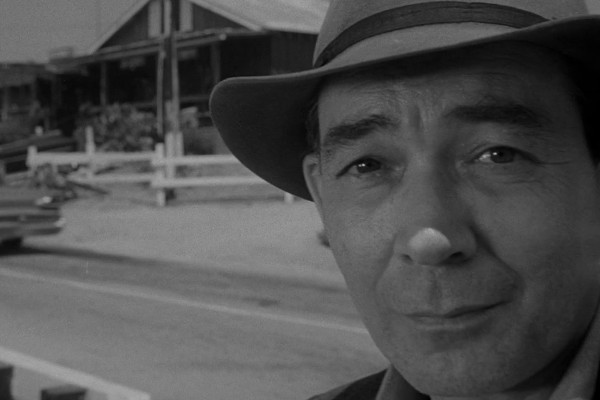
Often the Twilight Zone episodes that are the most "twist" orientated don't stand up to repeated viewings. The heavily signposted (no pun intended) surprise ending to this one is familiar territory that has been repeated many times since, even in the Twilight Zone itself. However, there's enough noirish filming and committed performances to make it still work, even if it's one that can feel a little empty once you're aware of the reveal. The series is often known for its scary episodes with moments of horror, and it's a genre oddly missing throughout much of season one. The Hitch-Hiker more than makes up the balance.
The story was based on a 1941 radio play by Lucille Fletcher, which saw Orson Welles play the then-male lead throughout four productions during the 1940s. It's an unusually fourth-wall breaking episode, with lead Inger Stevens providing a narration in addition to Serling's, and the mysterious hitch-hiker of the title at one point staring at the viewers at home. Sadly, Stevens died of an overdose in 1970, aged just 35.